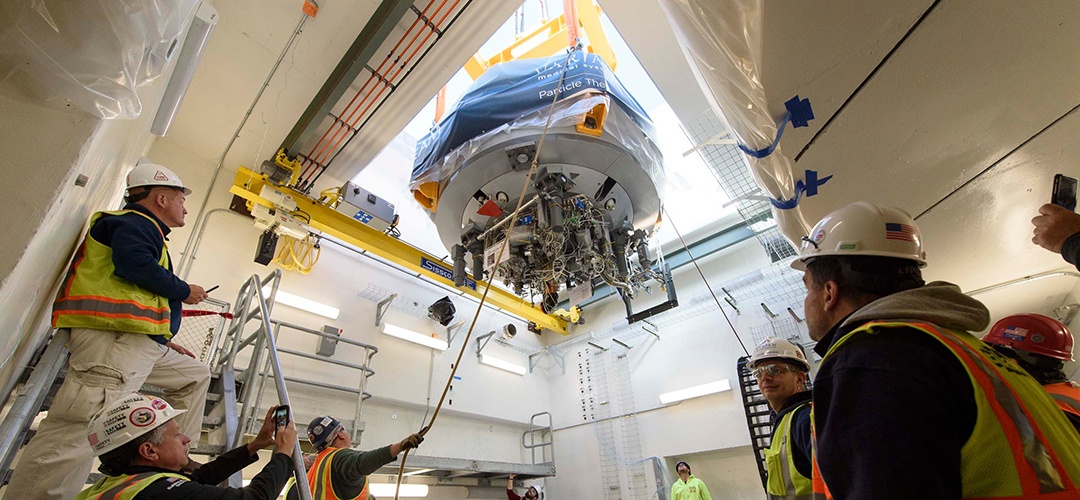The Power of Proton Beam Therapy
MSK is pioneering this more effective, less harmful precision therapy.
It Started With the X-Ray.
In 1896, a physics professor first described the x-ray. His achievement led shortly to the use of x-rays to diagnose and treat cancer. But radiologists, who used their own bodies to test dosage, soon understood that radiation could cause cancer as well as kill it. Many developed leukemia.
Since then, the primary goals in patient care have been to target cancer more precisely, more effectively, and with fewer side effects. Proton beam therapy hits this trifecta.
How Proton Beam Therapy Works
At MSK, the first step is a CT or MRI scan to map the tumor in three dimensions. Then radiation oncologists, in close collaboration with medical physicists, use computer programs to calculate how to deliver the treatment at the precise dose and location. Finally, a device called a Cyclotron delivers a direct, high-energy beam of protons through the skin toward the tumor to damage and destroy it.

Cyclotron being installed at MSK
Better Treatment, Fewer Side Effects for Cancer Patients – Including Children
Because proton beams do not penetrate beyond the tumor, they reduce the risk of treatment-related side effects in surrounding tissues in comparison with other radiation therapies. Proton therapy also allows for a higher radiation dose in certain patients — maximizing the opportunities to kill cancer cells and restore patients’ health.
Getting Even More Precise, for Even More Patients
MSK researchers have pioneered several forms of proton beam therapy for head and neck, prostate, lung, and breast cancers, including pencil beam scanning technology. Pencil beam scanning allows proton therapy to be delivered in its most targeted form, which can further reduce exposure to nearby healthy tissues.
MSK research supporters help fund therapy breakthroughs like this. Together, we can ensure that anyone living with cancer receives more effective, less harmful treatment options.
Make an impact on research and patient care at MSK DONATE NOW
